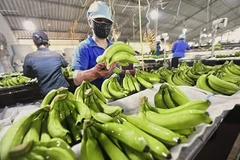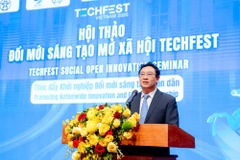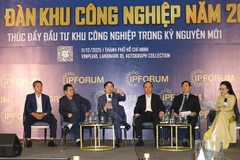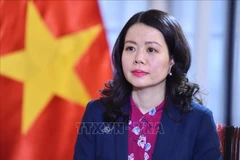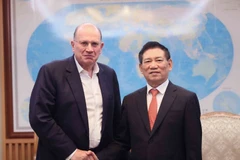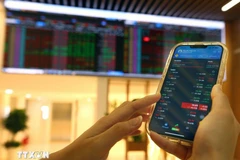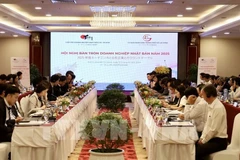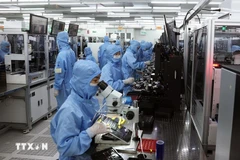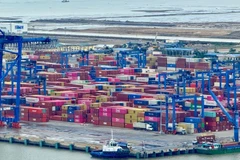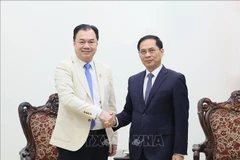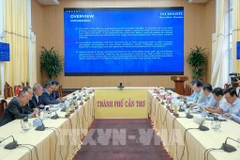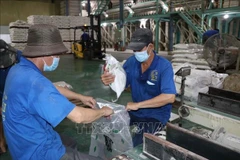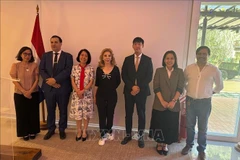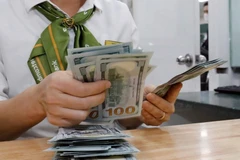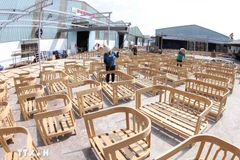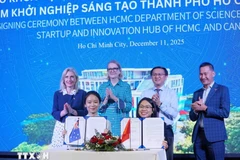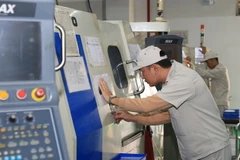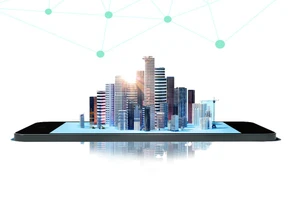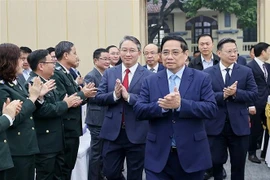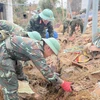Organised by the Federation of IndianChambers of Commerce and Industry (FICCI), the Indian consulate, and theVietnam Chamber of Commerce and Industry, it was attended by more than20 Indian companies operating in infrastructure, IT, mining, banking,healthcare, and education.
Ninad Karpe, leader of theFICCI delegation and CEO of IT training giant Aptech Ltd, said he hopedthe forum would help Indian and Vietnamese companies create new businesspartnerships.
Vo Tan Thanh, director of the VietnamChamber of Commerce and Industry in HCM City , said trade betweenthe two countries had surged from 72 million USD in 1995 to 2.75 billionUSD last year.
So far this year, Vietnam 's exports to India were 739 million USD and imports, 1.3 billion USD.
India was an import trade and investment partner but Vietnam 'strade deficit remained high and "the two sides are working to reduce[it] and boost trade."
To achieve sustainable development,Vietnam had to focus on infrastructure, which was rather poorcompared to that of other countries, and energy development.
It needed an estimated 70-80 billion USD in the next five to 10 years to build road and rail infrastructure and ports.
For this, besides local investment, the country would also seekinvestment from other countries, offering a great opportunity for Indianinfrastructure companies.
Anil Nikam, assistant vicepresident of Infrastructure Leasing and Financial Services Limited,said: "With [their] recent investment and experience in India , Indianinfrastructure companies would like to be an active participant in theproposed development of Vietnam ."
Karpe said with itsyoung, fast-learning, and large workforce and cheaper production coststhan India and China , Vietnam was also a promising investmentdestination for IT companies.
Many large global IT companies like Intel, IBM, and Samsung had already invested in the country, he pointed out.
Abhay Thakur, Indian consul in HCM City, said: "The Indian corporatesector is looking to utilise opportunities to invest in theinfrastructure, power, IT, auto-components, banking and finance, andmineral sectors as well as to use Vietnam as a hub for reaching out tothe entire ASEAN region.
"However, to further boost Indianinvestment in Vietnam , it is necessary to inform and providespecific opportunities to attract potential investors."
Indian companies were also interested in the agricultural, health, and pharmaceutical sectors, he said.
Nguyen Anh Ngoc, deputy director of the HCM City Investment and TradePromotion Center , presented an overview of the national and cityeconomies and the city's development goals.
To Minh Gioiof the Steering Committee for the South-western region spoke about thesocio-economic development of the 13 Cuu Long ( Mekong ) Delta provincesand called on Indian companies to invest there, especially inagricultural processing. /.
